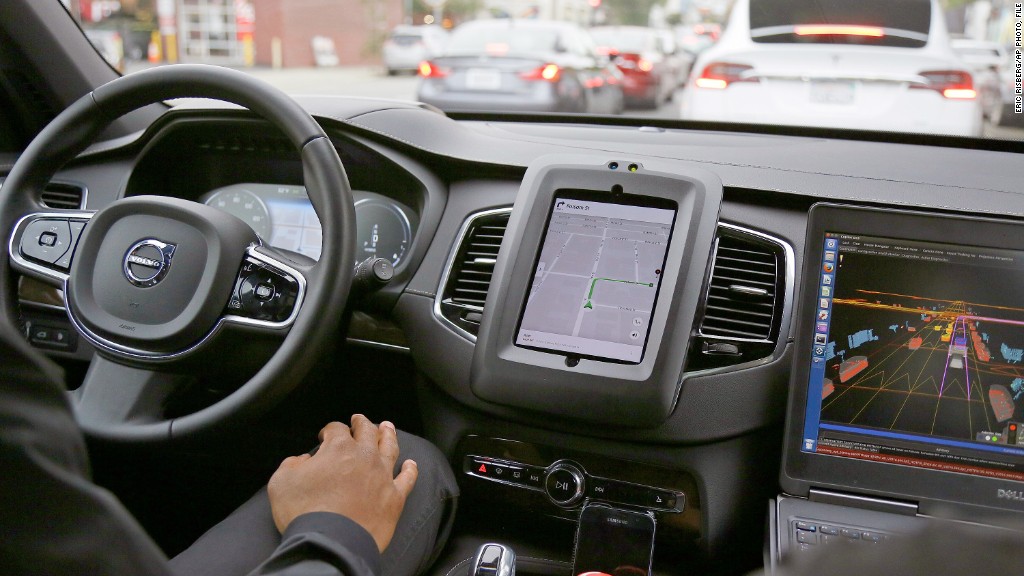
Come Memorial Day, Labor Day and even the Fourth of July, auto sellers will pull out all the stops with balloons, burgers and bands to get you on their lot and sell you a vehicle.
But are those sales for real?
For people who buy or lease a car once every five to ten years, it's hard to know if there's any real savings in the hype of the holiday sales. If it all comes down to negotiation anyway, are you really getting a better deal during holidays?
The auto expert's response: Yes.
But not all deals are equal and not every vehicle is included.
"Can you get a deal on Black Friday?" asks Matt Jones, a senior editor for consumer advice at Edmunds and former car salesperson.
Sure you can, he says, "if you're buying the particular television that has been marked down." But if you're going in there for hand towels, there's going to be no discount. And if you want the latest iPhone, you're going to pay full-freight whether it's Black Friday or not.
It's the same in the car business.
"For the person who is buying the right car at the right time, there can be some real savings," says Jones.
Here's how to push past the hot dogs and hoopla to get those deals. Keep your eyes on these three factors when buying your next car.
Know the incentives and rebates
The first you hear of an incentive should not be from the sales person.
You'll want to do your homework, says Jones. "You want to get a read on what a regular deal is, then go for the holiday sale."
A good way to do this is to track incentives and rebates. Go to an industry source like Edmunds or Kelley Blue Book for their current lists of automaker discounts and sweeteners.
These are the manufacturer's blue-light specials, but they don't compare apples to apples. It may be $2,000 cash back on one model and $300 cash back on another. Some deals may be available only to certain groups of people like recent college graduates, veterans or those who already own a vehicle from the automaker.
Usually the incentives come in the form of cash rebates, a low annual percentage rate on financing or special lease terms. But it could also be a totally unrelated bonus gift, like an iPad or a boat. (Seriously: "Yes! There was a dealership in Texas that was giving away a boat with the car!" says Jones.)
After you look at the automaker's deals, check out any additional specials local dealers have.
"If you see big fat incentives from the automaker, chances are the dealership may have incentives of their own," says Jones.
Choose the right kind of car
Not only do manufacturer and dealer incentives get car buyers' attention by saving them money, they help steer buyers toward particular models that automakers want to move. Those cars may suddenly become much more attractive.
In short, you're not going to get a sweetheart deal on the new Dodge Demon -- that's going to be $90,000 any day of the week. But the current year's Chrysler 300 or Ford Expedition? Now you're talking significant discounts.
When you're deciding which kind of car to buy, look at cars that are being phased out or replaced with new models, says Jones. They're more likely to be discounted.
Most people just want to be sure they're not over-paying, says Jones. "On sale days, if you do a little bit of research, chances are you'll be in good shape."
Get the timing right
There are ways to time your purchase to improve your chances of getting a lower price.
Even if you take advantage of time-sensitive deals, you can still negotiate the price lower.
"If the sticker is $30,000 and there's $5,000 cash back, it doesn't mean $25,000 is your ultimate best deal," says Jones.
But, he said, the timing -- a sale weekend when there are already discounts and the showroom is incredibly busy -- means long, drawn out negotiations may not be necessary or even possible.
"Read the room," says Jones. "If you walk in there and you're the only person there, you may have more time for negotiation." But if it's full of people, you're not going to get an hour for negotiating, "you'll get 20 minutes."
Jones also said that if you can buy a car when there are two years of that model on the lot (often at the end of the summer, but not always) you're likely to get a better deal.
"Those are real, no-smoke-and-mirrors deals."
